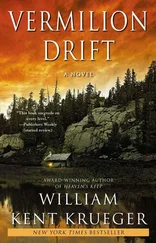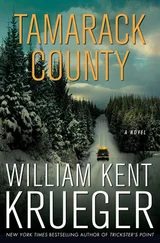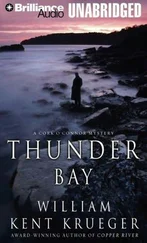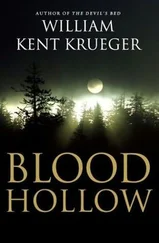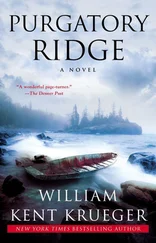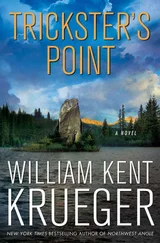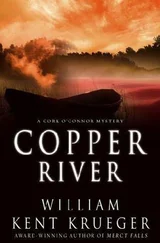She’d been worried about him. They’d been a couple for almost a year and, in June, had moved in together. She didn’t know what to call him exactly. Friend? He was way more than that. Boyfriend? Oh, God, how teenager was that? Lover? Way too explicit. Partner? For the moment, yes, but they hadn’t talked much about what was beyond the moment. Significant other? He was significant, sure, but what a clumsy epithet. So she’d simply refrained from calling him anything except Aaron. This was going to be the first time the family would meet him, and she was concerned. Things between her and Aaron hadn’t been exactly smooth lately.
She looked across the littered water and wondered if he’d made it safely to the Northwest Angle before the storm swept through. She wondered if he was all right. And if he was, was he worried about her?
Or, she thought in a sudden acid moment of honesty, was he relieved?
At last she dropped the camera back into the knapsack, shouldered the bag, and turned to explore the island onto which fate had cast her.
The nearly total destruction made it impossible to go inland, so Jenny began to walk the shoreline. The water was shallow, the bottom mostly rock, and she moved easily, though carefully, over the irregular stones. The sun was out, as bright as ever, and the sky was a soft blue, as if no storm had ever crossed its placid face. To one degree or another, all the islands, those she could see anyway, showed the devastation of the storm. All except for one across the channel, a small island that was composed mostly of a single tall rock outcropping with a cliff facing the direction from which the storm had come. All the trees that stood in the lee of that rock rise were undamaged. As Jenny watched, a small brown animal, something weasel-like, swam to the shore, climbed out of the water, shook itself, and scampered into the undergrowth and trees.
She walked nearly half a mile, calling out her father’s name every few minutes like a kind of distress signal, before she rounded the far end of the island. She’d seen nothing helpful, destruction everywhere.
“Will anyone ever come by here?” she wondered aloud.
She pretty well knew the answer. The man who’d rented them the houseboat in Kenora had told them that it was possible to motor among the islands for days and never see another soul. When Jenny had asked if he knew the Lake of the Woods well, he’d answered cryptically, “Nobody really knows this lake.”
If the others were all right, would they come searching for her? Of course they would, but it wouldn’t matter. They would have no idea where to look. Her father had been circumspect about their excursion on the way to Young’s Bay Landing to pick up Aaron. He’d told her he wanted it to be something special between the two of them. The children in the pictographs, she understood now. His not very subtle way of asking about her own intentions in that regard. Well, it had probably seemed like a good idea to him at the time.
She looked up and saw a couple of bald eagles circling, searching in vain, she speculated, for a nest that no longer existed.
The island was narrow—generally only a couple of hundred yards wide—and humped with two hillocks of smooth, white rock, one near either end. The shoreline was pocked with little coves and inlets, now clogged with fallen timbers.
She looked up at the blazing sun and said, “At least it’s hot. I won’t freeze. And I have plenty of clean water, if I’m willing to risk a little giardia.”
She was speaking of the parasite that, she knew, sometimes inhabited the water of the North Country and that, if ingested, could play hell with her digestive tract. But it was infinitely preferable to dying of thirst.
Food was a different matter. She hoped she was rescued before that became an issue. She was glad she’d had both a hearty breakfast and lunch.
As she moved up the other side of the island, Jenny caught sight of something in the interior. She shaded her eyes against the brilliant sunlight and squinted. It was a small cabin amid the debris. Hope, a kind of spiritual adrenaline, ran through her. She turned quickly inland.
The going was far more difficult than she’d imagined. She worked her way laboriously over dozens of fallen trunks—pine, spruce, and poplar. Climbing and crouching and slithering, she took ten exhausting minutes to go only a hundred yards. She stood at last before a small structure built of logs and with a roof that was made of cedar shakes covered with birch bark. Each side ran maybe fifteen feet in length. Windows had been cut in each wall and were covered with soiled oilcloth. An enormous red pine had toppled in the storm and cleaved the roof, causing much of the back wall to tumble. It had come to rest on the top cross log of the front wall.
She’d seen such structures before, old trapper cabins or abandoned hunting camps in the woods of Tamarack County, north of Aurora. She walked to the door, lifted the latch, and entered.
It was a single room. The huge, fallen pine had invaded much of the area inside, creating a kind of labyrinth of sharply needled branches. The logs of the toppled back wall also cramped the room, and what open space was left felt tiny. Against the wall to her right, clear of the wreckage of the back wall and untouched by the pine boughs, was a bunk with bedding. Except for fallout from the damaged roof and the wetness from the rain that had come through, the bedding looked relatively clean. Toward the back, crushed under a couple of tumbled logs, was a rough-hewn table, with two broken chairs. In the center of the room stood a cast-iron potbellied stove. A long section of stovepipe had come down when the pine hit the roof, and it lay on the floor amid a shadowy splash of soot.
She ducked under the trunk of the protruding pine, and the far side of the cabin was revealed to her.
“Well, well,” she said, pleased. “At least I won’t starve.”
Against the wall of the cabin, cardboard boxes stood stacked waist high. On the side of each box was printed the contents, which included canned peaches, canned lima beans, canned peas, canned Hormel chili, canned Spam, and half a dozen other edibles. A long, slender table had been shoved against the cabin wall next to the boxes. The tabletop was maple, planed smooth and cleanly varnished. On it sat a Coleman propane stove, open and ready for business. A little way down the table were neatly stacked cooking pots and two cigar boxes, one filled with utensils and the other with candles. There were kitchen matches in a sealed Ball jar. Near the end of the table lay a stack of folded towels. Arranged against the wall beneath the table were a dozen plastic, two-gallon jugs of distilled water.
At first, she considered that maybe this was a seasonal camp, but it looked as if someone had been there for a while and was planning to be there for a while longer. A semipermanent residence. There was only one bunk, and unless a couple of toothpicks slept in it, it was only large enough for a single body.
“Where did he go?” she said to herself and decided the cabin’s resident had fled before the storm.
She spotted a cardboard box that was not stacked with the others but had been placed specially under the long maple table. The name on the box was familiar to her, and surprising. Similac.
“Baby formula?” she said to herself.
In the quiet of the moment that followed, from somewhere outside the cabin, came the whimper of what sounded very much like an infant.
FIVE
The wind was gentle, but the houseboat was large. Its broad side acted as a sail. Despite Rose’s best and desperate efforts, the boat drifted farther and farther beyond her ability and her endurance. For what felt like hours, she swam through the debris the storm had littered on the surface of the water. She finally stopped, exhausted, and watched the boat scoot out of the little bay and into the great expanse of open water.
Читать дальше

